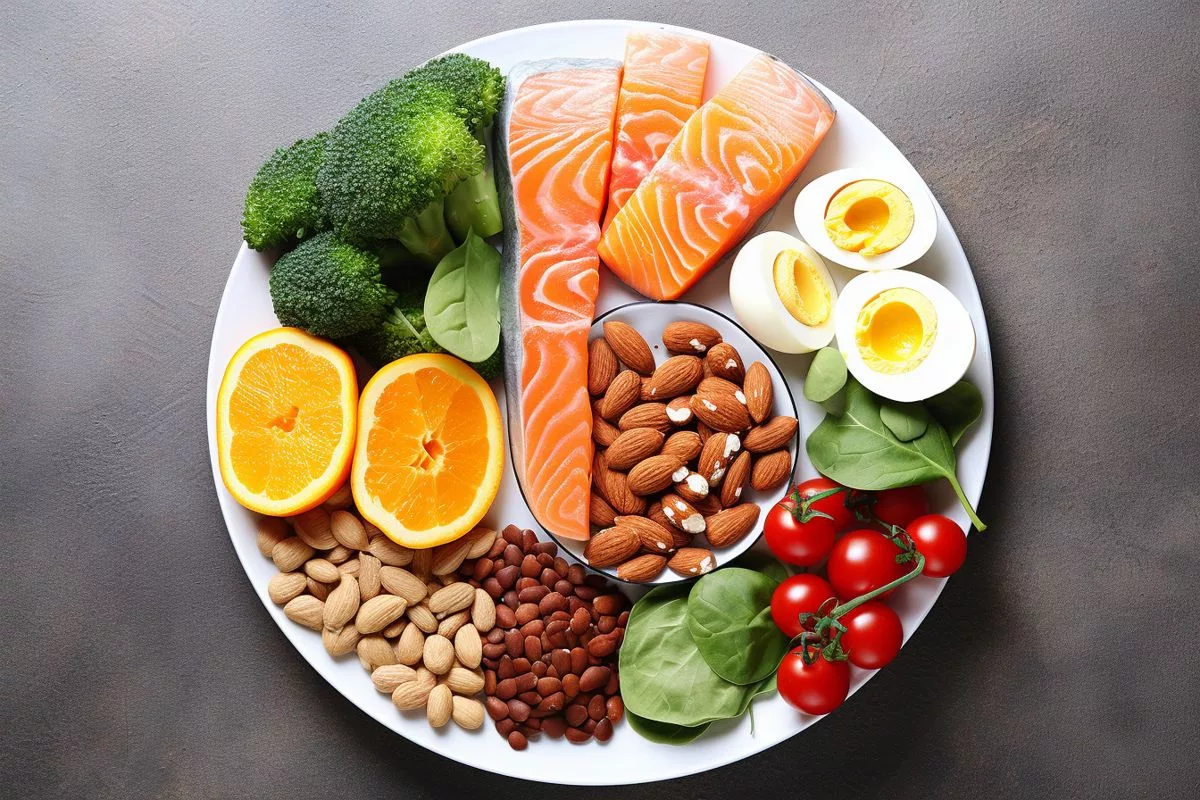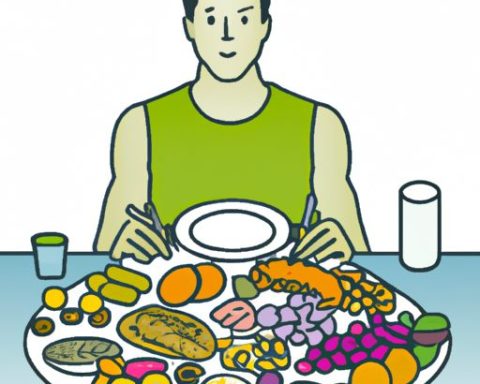Our bodies use hormones like ghrelin and leptin to control hunger and fullness. When we try to lose weight, we can interfere with these hormones, making us feel hungrier and more likely to overeat. However, there are strategies we can use to manage our appetite, like eating a nutritious breakfast, prioritizing protein, good fats, and fiber, adopting mindful eating habits, getting enough sleep, managing stress, and avoiding self-deprivation. By understanding and implementing these strategies, we can successfully manage our appetite and achieve weight loss goals.
The Role of Hormones in Hunger and Satiety
Our bodies utilize a range of hormones to regulate our sensations of hunger and fullness. The central characters in this biological narrative are ghrelin, often referred to as the ‘hunger hormone’, and leptin, a hormone that signifies satiety.
The renowned Benjamin Franklin famously remarked that the only certainties in life are death and taxes. This insightful quip could be broadened to include the universally experienced hunger pang felt when dieting. This enduring reality is rooted in our basic biology and the complex interactions of hormones in our bodies. Gain a deeper understanding of how these hormones operate and how their functioning can be disrupted, providing fascinating insights into the body’s resistance to shedding weight.
The Role of Hormones in Hunger and Satiety
Our bodies utilize a range of hormones to regulate our sensations of hunger and fullness. The central characters in this biological narrative are ghrelin, often referred to as the ‘hunger hormone’, and leptin, a hormone that signifies satiety.
During periods of food need, the stomach secretes ghrelin, which stimulates the hypothalamus, a part of our brain, convincing it to broadcast the hunger signal. On the other hand, when we’ve had our fill of food, a mix of hormones, including leptin from organs such as our gut and adipose tissues, alerts the brain that it’s time to stop eating.
Disruption of Hormonal Function During Weight Loss
However, when we modify our dietary habits to lose weight, we unintentionally interfere with these hormones’ normal operations. This disruption kicks off a process deeply ingrained in our hunter-gatherer origins; an instinct for survival that safeguarded our forebears against famine during times when food was scarce. As a result, the hormones that control our hunger increase, urging us to eat more, while the hormones that signal fullness decrease, thereby amplifying our perception of hunger.
Predictably, this leads to higher caloric intake and eventual weight regain. More troubling is that even after regaining weight, the hormones related to appetite fail to return to their regular levels. Instead, they continue to demand more food intake, leading to an accumulation of fat as the body preemptively girds itself for future episodes of starvation.
Effective Appetite Management Strategies
Although this may appear disheartening, there are viable appetite management strategies that can help tame these primal reactions.
A consistent, nutritious breakfast is strongly advised. Studies show a small or low-calorie breakfast often heightens hunger, especially for sweets. In contrast, consuming the day’s biggest meal in the morning decreases hunger throughout the day. Remarkably, the body metabolizes breakfast calories 2.5 times more efficiently than evening calories, making breakfast the most crucial meal for weight management.
Prioritize Protein, Good Fats, and Fiber
Another crucial hunger-management strategy is prioritizing protein. Foods rich in protein, such as lean meats, tofu, and beans, can restrain the appetite-triggering ghrelin and stimulate a hormone known as peptide YY, which signals fullness to the brain.
Similarly, foods abundant in beneficial fats and fiber, like nuts and avocados, can aid in controlling hunger. These foods take longer to digest, staving off hunger for longer periods. Additionally, foods high in soluble fiber like beans and vegetables enhance the sensation of fullness.
Mindful Eating and Adequate Sleep
Adopting mindful eating habits also plays a vital role in appetite management. Eating at a slower pace better enables recognition of fullness, giving the brain enough time to adjust to the stomach’s satiety signals.
Getting enough sleep is critically important, as lack of sleep can unsettle appetite-regulating hormones, intensifying hunger and triggering cravings. Managing stress is equally critical as it can boost cortisol production, thus triggering food cravings.
Avoid Food Deprivation
Lastly, avoid self-deprivation. Restricting certain foods or food groups can exacerbate cravings for these very items. It’s crucial to include favorite foods in your diet, preserving the joy of eating.
In conclusion, our bodies are remarkably engineered survival machines, with mechanisms designed to prevent starvation, which can make weight loss a challenge. By understanding our appetite hormones’ complexities and implementing effective management strategies, we can successfully navigate this challenge.
1. What are ghrelin and leptin, and how do they affect hunger and fullness?
Ghrelin is a hormone that stimulates hunger, while leptin is a hormone that signals satiety. These hormones work together to regulate our sensations of hunger and fullness.
2. How does disrupting hormonal function during weight loss affect appetite?
When we modify our dietary habits to lose weight, we unintentionally interfere with these hormones’ normal operations. The hormones that control our hunger increase, urging us to eat more, while the hormones that signal fullness decrease, amplifying our perception of hunger, leading to higher caloric intake and eventual weight regain.
3. What are some effective appetite management strategies?
Effective appetite management strategies include eating a consistent, nutritious breakfast, prioritizing protein, good fats, and fiber, adopting mindful eating habits, getting enough sleep, managing stress, and avoiding self-deprivation.
4. How does protein help in hunger management?
Foods rich in protein can restrain the appetite-triggering ghrelin and stimulate a hormone known as peptide YY, which signals fullness to the brain.
5. How does sleep affect appetite?
Lack of sleep can unsettle appetite-regulating hormones, intensifying hunger and triggering cravings. Getting enough sleep is therefore critically important for managing appetite.
6. What is the importance of avoiding self-deprivation in managing appetite?
Restricting certain foods or food groups can exacerbate cravings for these very items. It’s crucial to include favorite foods in your diet, preserving the joy of eating and avoiding feelings of deprivation that can lead to overeating.











